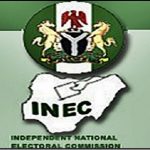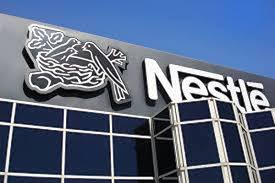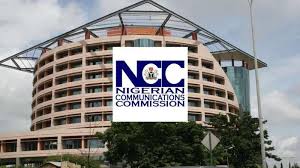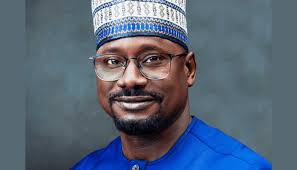Revealed: NBC returns GOTv’s N2bn to circumvent FG’s policy on DSO
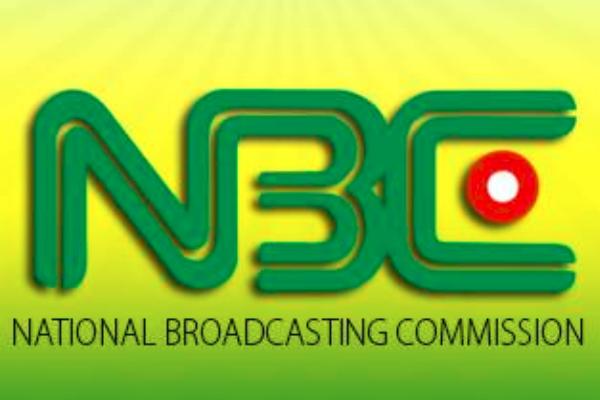
…Says act aimed at compromising FG’s policy on DSO
…Stakeholders commend NBC chairman
In a deft move to demonstrate its readiness to resist compromise and key into President Muhammadu Buhari’s zero tolerance for corruption, the National Broadcasting Commission (NBC) has returned N2 billion deposited into its account by GOtv, a subsidiary of MultiChoice, the South African entertainment television group, in an attempt to circumvent Federal Government policy on Digital Switch Over (DSO).
The Daily Times exclusively gathered that NBC Chairman, Hon Ika Bilbis-led management rejected the N2 billion that was surreptitiously paid into Corporation’s account by GOtv as a pre-emptive ploy to evade the June 2019 termination of its Digital
Terrestrial Television (DTT) broadcast licence and deadline in accordance with the new policy of the Federal Government.
The development indicates that GOtv’s licence will not be renewed after its expiration in 2019 as every broadcast outfit in Nigeria must comply with the government policy on DSO.
The present administration’s war against corruption has been earning more credibility in dealing with the hitherto unchallenged contemptuous attitude of some foreign companies that have regularly circumvented government regulations affecting their businesses by brazenly exploiting the notorious vulnerability of officials to corrupt inducement.
In the previous administrations, the South African companies in the telecommunications and broadcasting industry, embarked on sharp practices to exceed prescribed profit margins, illicit fund repatriation and unduly hiking subscription rates, at the expense of government revenue and customers in a treacherous predisposition.
In what is now viewed as a stubborn refusal to bow to the ruthless reality of zero-tolerance of corrupt practices being the arrowhead of the Buhari Administration’s change agenda, GOtv , a subsidiary of MultiChoice,
the South African entertainment television group, reportedly got a red card rejection of its N2 billion bait surreptitiously dropped into an account of the National Broadcasting Commission (NBC), as a pre-emptive ploy to evade the June 2019 termination of its DTT broadcast licence and deadline and comply with the new policy of Government.
It made the unsolicited huge cash deposit in utter disregard of the NBC’s earlier directive and notice informing it of the position of NBC in line with the new policy.
The deposit was said to have been made in a bid to entice the broadcast regulator’s supposedly cash-strapped management into spending the money which is equivalent to the annual licence renewal fee normally paid by GOtv.
Accepting the payment would have compromised NBC and frustrated the policy of the Federal Government.
The South Africans instead got the shock of their lives when the no-nonsense Chairman of the NBC, Ikra Aliyu Bilbis, ordered the prompt return-to-sender of the N2 billion deposit with a stern warning to GOtv to abide by the NBC’s earlier notice by ensuring compliance with the deadline, emphasising that there would be no waiver or exemption.
Some stakeholders in the broadcasting industry who were familiar with the incident, commended the Chairman of NBC, urging other heads of Ministries, Departments and Agencies (MDAs) of government to follow Bilbis’s exemplary leadership, adding “he should be given a national honour for this singular act.”
It was a timely reassurance on the effectiveness of the Buhari Administration’s applauded anti-corruption policy that sent ripples of deterrent realisation down the boardrooms of the South African and other foreign companies hitherto hooked on exploiting corrupt practices to get away with various sharp practices.
The GOtv gamble to circumvent the DSO policy guidelines got bungled at a time its parent company , MultiChoice, is embroiled in litigation to ward off its own red card from the Consumer Protection Council (CPC) which prohibited a range of newly hiked viewer subscription fees it announced, triggering a wave of protests by enraged customers across the country.
But the NBC had in February this year, issued a warning notifying all pay television service providers in the country that their operating licence may be terminated by next year, 2019.
According to sources, the action of the regulatory agency not to renew the licence, which was issued in 2014, was hinged on non-compliance with DSO White Paper.
Prior to the NBC’s warning, there had been allegations that GOTV was being used as a conduit to siphon foreign exchange from Nigeria by its parent company, MultiChoice.
A third South African company and the leading mobile phone telecommunications service provider in the country, MTN, was also reeling from its own hefty refund hammer from the Central Bank of Nigeria (CBN) which ordered it to refund $ 8.13 billion illegally repatriated by the company even
as it is yet to pay an outstanding N220 billion out of N330 billion fine slapped on it by the Nigerian Communications Commission(NCC) in 2015 for failing to disconnect about 5.1 million unregistered subscribers from its network as directed by the regulator.
The series of strict deterrent and punitive measures being imposed on the erring South African companies operating in Nigeria since President Muhammadu Buhari came into office has become a reassuring reference point on the unwavering commitment of the Administration to maintain its highly acclaimed policy of zero-tolerance of corruption as the main thrust of its change agenda.
It is clearly sending strong signals to the foreign business community as a whole to come to terms with the new dispensation in the country by compliance with international best practices in their transactions in Nigeria, rather than seeking to capitalise on the fast disappearing culture of corruption.
With the transition process threatened, the NBC has taken every steps necessary to ensure that Nigeria did not miss its own share of the $82 billion ‘digital dividend’ by 2025.
If the transition is properly and timely executed, it anticipated that the sale of analogue frequencies no longer used by broadcasters could bring the government over $2 billion.
The Daily Times findings indicated that through the release of digital dividend spectrum, Sub-Saharan Africa stands to increase its yearly regional GDP by $82 billion by 2025, while in the process earning $18 billion in incremental tax revenues and creates 27 million jobs.
These dividends have been recognised and approved for Broadband usage in Nigeria by the National Frequency Management Council (NFMC) since 2012. This is the only authority on spectrum usage recognised by the Nigerian Law.
The Daily Times further gathered that while digital dividend spectrum can be viewed as a big ticket item that could ultimately facilitate broadband roll-out of Long Term Evolution networks, the Nigerian Communications Commission (NCC) and the NBC are also exploring opportunities for using TV ‘whitespaces’,
or the vacant and unused frequencies that can be made available at locations where spectrum is not being used for licenced services, to help achieve last mile connectivity in rural areas.
The digital migration would be a vehicle to deliver improved audio-visual content to consumers and would also help more efficiently and effectively in the utilisation of spectrum, freeing up the Digital Dividend band for mobile.
The journey towards the DTT broadcasting, otherwise known as digital migration, started in Nigeria on June 17, 2006, after the country had signed international and regional agreement with ITU to conclude digital migration by June 17, 2012.
In a bid to achieve the 2012 migration date, the Federal Government in 2007, approved the process, in 2008, inaugurated a Presidential Advisory Committee (PAC) on transition from analogue to digital broadcasting.
The commission has continued to engage the various stakeholders including legislators, government officials, broadcasters, educational institutions, marketers and suppliers of broadcast equipment, and the international communities, among others on the success of the DSO.
Meanwhile, when contacted, the Public Relations Manager, MultiChoice, Caroline Oghuma, said: “We are multi-national organisation and we abide by the rule. We don’t operate outside the established laws.”
NBC said it has been working around the clock to achieve the roll out of the DSO in one state in each of the six geo-political zones as the next phase after Plateau and Abuja.
The Federal Government had licenced three national signal distributors, Pinnacle, MTS and Integrated Television Services (ITS), to drive digital signal distribution across the country and to provide easy access to digital signals to Nigerians and are given the target to complete the next phase of the DSO in other states of the country.
Digital Broadcasting Migration is a process in which broadcasting services offered on the traditional analog technology are replaced with digital based networks over a specific period.
DVB (Digital Video Broadcasting) is the standard for digital television that has been adopted in most countries in ITU Region 1, where Africa falls.
Among the benefits of digital broadcasting are higher audio-visual quality and availability of greater number of channels to viewers, including access to Free-to-Air at the expiration of subscription.


